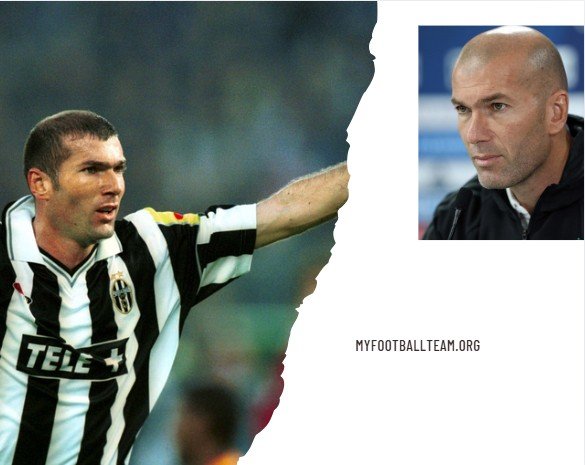Johan Cruyff is one of football’s most celebrated figures, renowned not only for his exceptional playing skills but for his profound influence on football philosophy. His contributions have not only shaped modern football but also inspired generations of players, coaches, and fans. Through his promotion of “Total Football” and his visionary strategies, Cruyff changed how football is played, managed, and enjoyed across the world. This detailed analysis explores his multi-faceted contribution to football, both on and off the field.

1. The Birth and Growth of Total Football
Cruyff was the embodiment of “Total Football,” a tactical system that originated in the Netherlands with coach Rinus Michels. Total Football introduced the idea that players on a team could swap positions fluidly, allowing for continuous movement and adaptability on the field. The concept allowed any player to fill any position as needed, creating a seamless and unpredictable style of play.
Cruyff was instrumental in advancing Total Football because he understood the nuances of the system and was adept at adapting to any position on the field. His awareness, agility, and technical precision allowed him to anticipate the play, making him both a versatile attacker and a playmaker. Under this system, Cruyff’s skill set expanded, and he became the central figure in the Ajax and Dutch national teams, playing a significant role in bringing global attention to the style.
Key Highlights of Total Football:
- Positional Fluidity: Cruyff’s positional awareness made him an ideal player to spearhead Total Football, allowing seamless transitions between defensive and offensive roles.
- Focus on Team Dynamics: Total Football required players to read each other’s movements and respond collectively, reinforcing a strong team synergy that was unprecedented at the time.
- Influence on Modern Tactical Approaches: Today, elements of Total Football can be seen in the tactical formations of leading teams around the world, with many managers using variations of Cruyff’s approach.
2. Cruyff’s Playing Style and Technical Innovation
Cruyff wasn’t just revolutionary in his strategy; his style of play was also groundbreaking. He approached football with a combination of technical excellence, game intelligence, and creativity, a mix that made him unpredictable and unstoppable on the field. One of his most famous contributions to football’s technical repertoire is the “Cruyff Turn.”
The Cruyff Turn involves feigning a pass or shot while using the inside of one foot to drag the ball behind the other leg and change direction sharply. This move surprised opponents, created space, and allowed Cruyff to break past defenders with ease. It became symbolic of his playing style—strategic, skillful, and efficient. The turn is now a fundamental skill taught to young players globally, with Cruyff’s influence clearly seen in the way the move remains popular among both amateur and professional players.
Attributes of Cruyff’s Playing Style:
- Vision and Awareness: Cruyff’s ability to read the game and anticipate the next move allowed him to exploit opponents’ weaknesses and create opportunities for his teammates.
- Speed and Balance: Despite his lanky frame, Cruyff maintained balance and speed, which, combined with his agility, made him a challenging opponent to defend against.
- Creativity and Innovation: Cruyff continually developed new techniques, proving himself not only as an exceptional player but as an innovator in the sport. The Cruyff Turn is a prime example of his creative approach.
3. Legacy as a Manager and Architect of Modern Football
After his illustrious playing career, Cruyff transitioned to management, where he further solidified his impact on football. As manager of FC Barcelona, he built one of the most iconic teams in history, often referred to as the “Dream Team.” His tenure at Barcelona was marked by a commitment to Total Football principles, an emphasis on possession, and an attacking mindset. His approach transformed the club and set the foundation for its future success.
Cruyff’s Barcelona became known for its style of play, where players prioritized ball control, accurate passing, and maintaining possession. He encouraged players to push forward, be versatile, and play with flair. His influence can still be seen in the way Barcelona plays today, particularly in the “tiki-taka” style of passing football popularized under Pep Guardiola, one of Cruyff’s most famous protégés.
Contributions as a Manager:
- Promotion of Youth Development: Cruyff emphasized the importance of nurturing young talent, advocating for youth academies like La Masia. This focus on youth development allowed Barcelona to cultivate a generation of players who would go on to dominate world football.
- Attacking Philosophy: Cruyff’s teams were built to play offensive, attractive football. His philosophy centered around playing to win beautifully, rather than defensively.
- Legacy of Tiki-Taka: Cruyff’s focus on possession and teamwork laid the groundwork for the tiki-taka style that would become Barcelona’s hallmark.
4. Philosophy of the Beautiful Game
Cruyff’s contribution to football was as much about mentality as it was about tactics. He believed that football should be played with creativity, style, and joy. His concept of “beautiful football” advocated for an attractive style of play focused on flair, skill, and elegance, rejecting the idea of merely winning by any means.
He viewed football as an art form and encouraged players to approach the game with freedom and imagination. This mindset changed how players approached the sport, encouraging them to think critically, be inventive, and not be afraid to try new things. Many players and managers have spoken about how Cruyff’s ideas freed them to enjoy the game and focus on their creativity.
Core Aspects of Cruyff’s Football Philosophy:
- Play with Purpose and Joy: Cruyff encouraged his teams to enjoy the process of playing and not focus solely on the result.
- Emphasis on Skill Over Physicality: Cruyff prioritized technical skills and intelligence over physical attributes, allowing players of all builds to succeed.
- Building a Legacy of Freedom and Expression: He empowered players to think for themselves, creating a culture that values creativity.
5. Lasting Legacy and Global Influence
Johan Cruyff’s influence on football transcends his individual achievements; his ideas have permeated global football culture. His methods, philosophy, and strategic innovations remain a cornerstone of modern football coaching. Clubs worldwide have adopted his techniques and training styles, and his emphasis on youth academies has inspired similar systems across Europe, South America, and beyond.
Cruyff’s name is now synonymous with football intelligence, tactical genius, and an unwavering dedication to the game’s beauty. His legacy continues to impact players and managers around the world, with many of the world’s top footballing minds—like Pep Guardiola—crediting Cruyff as their greatest inspiration. From amateur fields to the biggest stadiums in the world, Cruyff’s influence can be felt in how the game is played, understood, and loved.
Highlights of Cruyff’s Enduring Legacy:
- Impact on Coaching and Tactical Evolution: Coaches around the world use Cruyff’s tactical frameworks, inspiring a new generation of thinkers in the game.
- Youth Development Systems: His advocacy for youth training has influenced football academies globally, emphasizing the importance of nurturing young players.
- Cultural Impact on Football Philosophy: His philosophy has changed football culture, emphasizing the idea that the game should be enjoyed, not just won.
In conclusion, Johan Cruyff was far more than just an exceptional player; he was a visionary who reshaped the very fabric of football. His tactical innovations, unique playing style, and philosophy have made him an immortal figure in football history. Cruyff’s legacy lives on in every pass, every piece of technical skill, and every beautiful goal scored on the world’s stages. His lasting impact continues to inspire, ensuring that his contributions to football will be remembered and cherished for generations to come.









